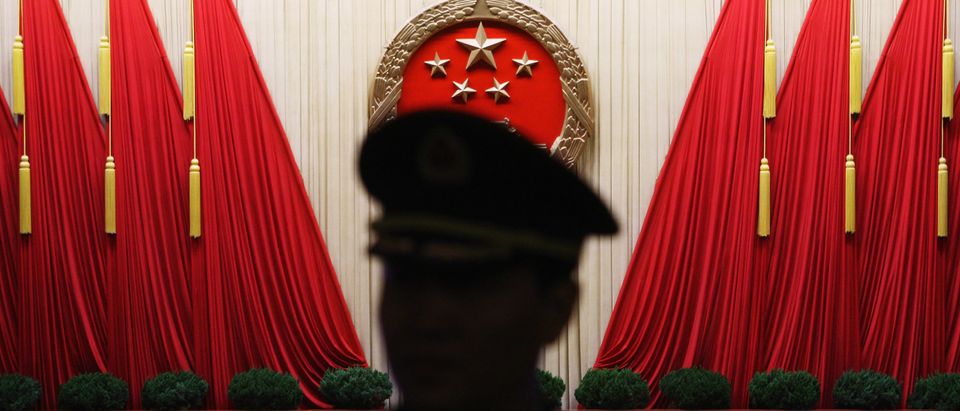As Xi Jinping prepares for the 20th Congress of China’s Communist Party next month, a new documentary that premiered in Washington, D.C., last week — “Innovation Race: There Is No Prize for Second Place,” presented by Tea Party Patriots Action — issues a stark warning about the ongoing competition between the United States and communist China on the intellectual property front: The U.S. is falling behind because of its own bad policy choices, and will be left in the dust if it doesn’t change things soon.
Xi has taken control of China during his decade in power, and looks set to cement his place and his plans for the future. The October party conclave will confer upon Xi an historic third term in his twin roles of general secretary of the Communist Party and chairman of the Central Military Commission. That will reinforce his status as China’s most powerful leader since Mao Zedong.
As “Innovation Race” highlights, China under Xi has taken a new tack — no longer satisfied with simply stealing or otherwise appropriating U.S intellectual property, nor contenting itself with manufacturing products invented elsewhere, China aims to become an intellectual property powerhouse in its own right, with all the attendant benefits. (RELATED: BASTASCH: China Is Laughing At Us)
Says Delaware Democrat Sen. Chris Coons, who has tracked developments in China as a member of the East Asia subcommittee of the Senate Foreign Relations Committee, “Xi Jinping and the Chinese Communist Party, in the last five years, have made it abundantly clear they intend to not just compete with the United States, they intend to surpass us, and to be the world leader in innovative technologies.”
To help accomplish this, China has revamped its own intellectual property protection regime — using America’s system as its model. Telecommunications entrepreneur Declan Ganley explains: “And they’ve gone, ‘Hang on a second. What if we don’t just steal the technology, what if we steal the system that America actually operates successfully, and we implement it in China. What if we out-‘America’ America?’”
Venture capitalist Gary Lauder, who’s made a career of investing in innovative technologies, concurs: “They have improved their own education system, and their own patent system, in order to foster innovation within China. They’re doing this very successfully.”
So on the one hand, China has taken clear steps to adopt a rigorous system to defend intellectual property rights, which acts to encourage and incentivize innovation. They’ve quite deliberately copied not just our technology, but the very system that encouraged the creation and development of that technology.
By itself, this would be bad enough. By itself, this phenomenon has allowed China almost to catch up to us on the intellectual property front.
We’ve made things worse. On our own side, we’ve made changes to our system that have actually handicapped our ability to compete in this crucial arena.
In 2011, President Barack Obama signed into law the America Invents Act, the most significant change to U.S. patent law since Harry Truman was president. Meant to reduce delays and litigation, and let American inventors and entrepreneurs focus on innovation and job creation, the law has had the opposite effect – it has weakened patent protection, and retarded innovation.
Sen. Coons explains: “Our patent system was recognized as the world’s gold standard for years and years – yet some of the changes to our patent law over the last decade have weakened it steadily.” Says Lauder, the venture capitalist, “Our patent system used to be very strong and reliable. That’s no longer the case.”
American patents simply aren’t worth what they once were. “Patents today are worth about half what they were worth a decade ago,” says retired Judge Paul Michel, who left his position as chief judge of the U.S. Court of Appeals for the Federal Circuit so he could speak freely about his concerns regarding the flaws in the current U.S. patent system.
“Dominating technology means you dominate the economy of the world. Dominate the economy of the world, you dominate the world itself,” says China expert Gordon Chang.
Chang sees the stakes as high: “This is a race we cannot afford to lose,” he says, “because we’re not going to have a country if we lose.’
The way to win is to fix the broken U.S. patent system. Protection of intellectual property is the engine that drives innovation. Until we accomplish that, we’ll be at risk of trailing communist China into the future. And that’s a risk we simply cannot take.
Jenny Beth Martin is Honorary Chairman of Tea Party Patriots Action.
The views and opinions expressed in this commentary are those of the author and do not reflect the official position of the Daily Caller News Foundation.
All content created by the Daily Caller News Foundation, an independent and nonpartisan newswire service, is available without charge to any legitimate news publisher that can provide a large audience. All republished articles must include our logo, our reporter’s byline and their DCNF affiliation. For any questions about our guidelines or partnering with us, please contact licensing@dailycallernewsfoundation.org.


